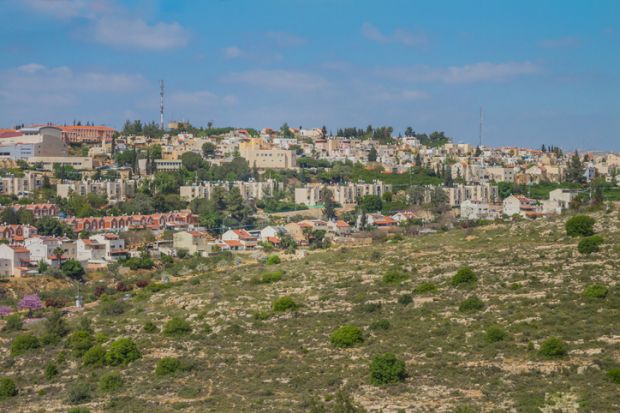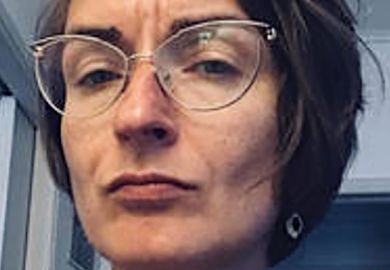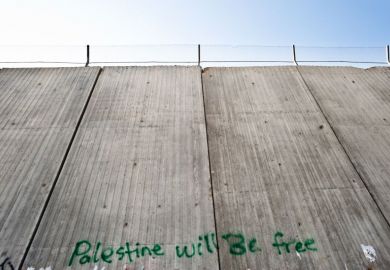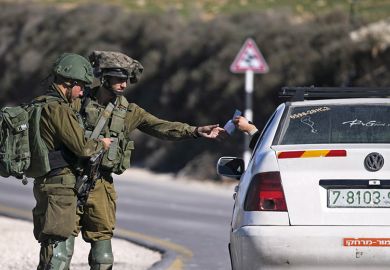At a recent ceremony at Ariel University, Israeli prime minister Benjamin Netanyahu, science and technology minister Izhar Shay and US ambassador to Israel David Friedman signed amendments to earlier agreements between the US and Israel that regulate bilateral collaboration in science, technology and agriculture.
The opening sentence of the US State Department’s official announcement of the amendments, signed on October 28, declares: “Today, the United States and Israel agreed to remove geographic restrictions” [emphasis added] on the earlier agreements, which date back to the 1970s.
Henceforth, joint scientific and technological ventures will be allowed and funded in all territories under Israel’s jurisdiction – in particular, at Ariel University. The announcement includes portions of the US ambassador’s speech, in which he declared: “Upon entry of force of the [amendments] signed here in Judea and Samaria, more Israeli partners will be eligible to receive funding for scientific collaboration in a wide variety of fields. [They] will further strengthen our deep science and technology ties and help promote economic security for both our countries.”
These seductive words hide an ugly reality. Nowhere in the announcement, or in the various speeches at the signing ceremony, is a recognition that Ariel University was built on land in the Occupied Palestinian Territory (OPT), in violation of international law forbidding an occupying power to resettle its population into the occupied land and dispossess the local population. Palestinians are barred from entering the settlement of Ariel and its university.
Ariel University was established by a decree of the Israeli Defence Forces in 1982 as the College of Judea and Samaria and was accorded university status in 2012. That year, more than 1,200 Israeli faculty members signed a petition opposing the establishment of Ariel, describing it as an attempt to recruit Israeli academic institutions in collusion with the occupation and settlement efforts. Most importantly, the two major international funding agencies of Israeli universities, the European Union and the US-Israel Binational Science Foundation (BSF), strictly forbade any of their grants from supporting research performed in the occupied territories in general and at Ariel University in particular. Nevertheless, in 2018, Ariel University was brought under the jurisdiction of Israel’s mainstream Council for Higher Education.
In his October 28 speech, Friedman took credit for being the initiator and patron of the new amendments, which remove the restrictions on BSF funding. He was “disappointed that [the earlier] agreements devoted to academic and scientific growth were subject to political limitations” and he took it upon himself to remove “geographic restrictions [that] no longer comport with our foreign policy.” This language reflects the declaration by the US in November 2019 that it no longer regards Israeli settlements as “inconsistent with international law.”
This may be the US’ view, but it does not change the fact that the settlements are in direct violation of international law. The Ariel settlement in particular was constructed deep in the occupied West Bank to erode the viability of an independent Palestinian state alongside Israel. The university was constructed in this location as a tool to whitewash the occupation and give it a coat of academic respectability and permanence. Any US academic collaboration with this illegal Israeli institution in the OPT will constitute collaboration with an oppressive military occupation and contribute to undermining the possibility of freeing the Palestinians from that occupation.
Friedman is no bystander to the movement advocating and promoting settlements in occupied Palestinian territories. He is a political appointee who, prior to being posted as US ambassador in Israel, was Donald Trump’s bankruptcy lawyer. He is the president of American Friends of Bet El Institutions, which raises money for the settlement of Bet El, outside Ramallah.
Academic activities should not be used to advance a political agenda, certainly not an agenda that involves military occupation and violation of human rights and international law. Education and research can be tools to further cooperation and peace. The long-standing US (and EU) policies have therefore been to refrain from supporting academic activities in Israeli settlements that are built on Palestinian land in the occupied territories.
Reversing this policy, and allowing direct US funding of settlement activities (in the guise of “pure academic activities”), will be harmful to the chances of peace, freedom, human rights and academia in Israel and Palestine. Individuals and institutions that participate in activities at Ariel run the risk of sanctions and penalties under international law.
Ahmed Abbes is director of research at CNRS, Paris. Ofer Aharony is Samuel Sebba professorial chair of pure and applied physics at the Weizmann Institute of Science. Nir Gov is the Lee and William Abramowitz professorial chair of biophysics at the Weizmann Institute of Science. Michael Harris is professor of mathematics at Columbia University. Assaf Kfoury is professor of computer science at Boston University. Anat Matar is senior lecturer in philosophy at Tel Aviv University. Haynes Miller is professor of mathematics at the Massachusetts Institute of Technology. George Smith is a curators’ distinguished professor emeritus of biological sciences at the University of Missouri.
Register to continue
Why register?
- Registration is free and only takes a moment
- Once registered, you can read 3 articles a month
- Sign up for our newsletter
Subscribe
Or subscribe for unlimited access to:
- Unlimited access to news, views, insights & reviews
- Digital editions
- Digital access to THE’s university and college rankings analysis
Already registered or a current subscriber?








